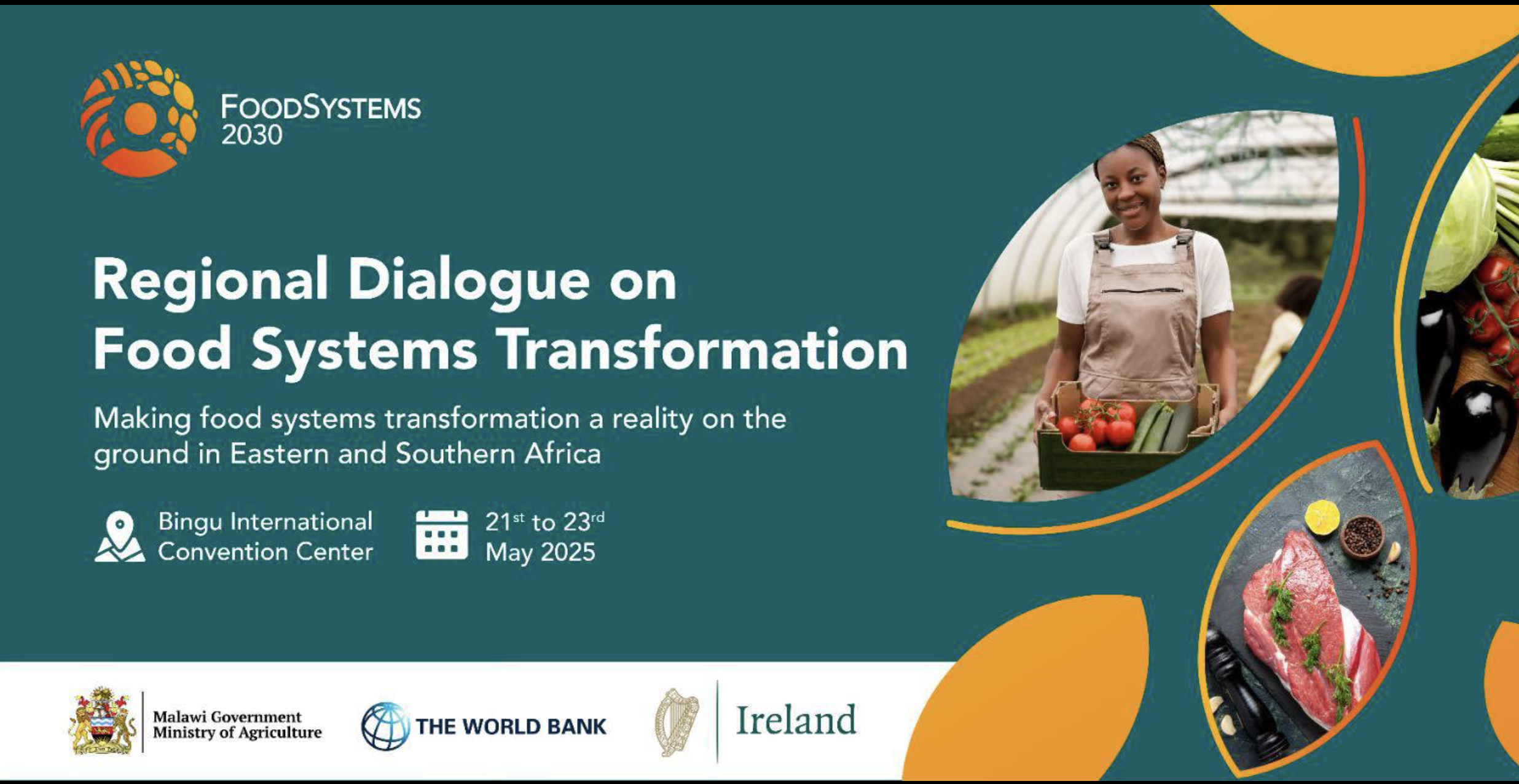
By Special correspondent | Lilongwe, Malawi — May 22, 2025
As the 2025 Regional Dialogue on Food Systems Transformation commenced in Lilongwe, Malawi, one voice stood out in its clarity and urgency—Dr. Firew Tegegne, Director at the Ethiopian Agricultural Transformation Institute (ATI), who passionately laid out a vision for harnessing regional trade and market integration to deliver fundamental, on-the-ground transformation in Africa’s food systems.
Drawing from Ethiopia’s pioneering food systems architecture and the nation’s experience in agricultural transformation, Dr. Tegegne highlighted how integrated markets, strategic value chains, and digital innovations could be harnessed across Eastern and Southern Africa to meet the continent’s food security goals and fulfill the aspirations of Agenda 2063.
“Transformation is no longer a concept—it must be realized on the ground,” Dr. Tegegne said, addressing ministers, technocrats, private sector leaders, and development partners gathered at the Bingu wa Mutharika International Conference Centre.
Ethiopia’s Coordinated Model: Lessons for the Continent
At the heart of Dr. Tegegne’s presentation was the Ethiopian Food Systems (EFS) Transformation model, a government-led, cross-ministerial initiative coordinated by ATI. The EFS framework is anchored in seven thematic clusters—ranging from nutrition-dense food production and value chain development to rural electrification and sustainable urbanization—and includes 24 Game Changing Solutions (GCSs).
“These solutions are not pilot projects or temporary interventions,” Dr. Tegegne emphasized. “They are scalable, sustainable, and designed to unlock long-term transformation.” Each GCS is designed to address systemic bottlenecks, promote innovation, and align public and private sector actions.
ATI, he explained, functions as the national secretariat of the EFS, reporting directly to an inter-ministerial coordination body chaired by the Ministry of Agriculture and the Ministry of Health, with oversight from the Office of the Prime Minister. This level of political backing, Dr. Tegegne noted, is essential for any African country serious about food systems transformation.
Market Access and Digital Innovation as Catalysts
Dr. Tegegne’s address zoomed in on two critical enablers: access to markets and digital transformation.
“In Ethiopia, we are expanding our National Market Information System (NMIS) to provide real-time market data to farmers, aggregators, and traders,” he said. “Price transparency, market intelligence, and digital payments can make or break a farmer’s ability to plan and profit.”
The NMIS, which began as a domestic platform, is now being positioned to support regional trade by integrating with other countries’ digital infrastructure. It facilitates buyer-seller linkages, tracks commodity prices, and improves value chain coordination.
He also announced Ethiopia’s pilot implementation of a Minimum Support Price mechanism for smallholder farmers, ensuring floor prices for priority commodities and shielding producers from market volatility. “It’s about equity and economic resilience,” Dr. Tegegne noted, underscoring the importance of integrating digital market tools with pricing guarantees.
The African Trade Puzzle: Barriers and Missed Opportunities
Despite the promise of digital tools and coordinated interventions, Dr. Tegegne issued a stark warning about Africa’s chronic underperformance in intra-regional trade.
“Only 10% of Africa’s imports come from within the continent. Only 15% of our exports are destined for fellow African countries,” he revealed, citing 2021 data. “This must change.”
He attributed this dismal performance to a web of interconnected barriers: poor infrastructure, inconsistent regulatory frameworks, non-tariff barriers, limited value addition, and monetary challenges such as multiple currencies and a reliance on USD-denominated trade flows.
The consequences are dire: fragmented markets, high trade costs, and weak regional value chains. “Africa continues to export raw commodities and import finished goods—this is economic leakage of the worst kind,” he said.
Dr. Tegegne emphasized the urgent need to fully implement the African Continental Free Trade Area (AfCFTA), strengthen regional economic blocs like COMESA, EAC, and SADC, and align national policies with continental aspirations. “AfCFTA must not remain a document signed in capital cities—it must be felt in the markets of rural Ethiopia, Kenya, Tanzania, Malawi, and beyond.”
Transforming Corridors into Economic Arteries
In one of the most powerful segments of his address, Dr. Tegegne outlined how agricultural transformation is tied to economic corridors and trade routes. Drawing on Ethiopia’s Agri-Commercialization Clusters (ACC) model, he described how geographic clustering of production, aggregation infrastructure, agro-processing facilities, and trade logistics can transform local value chains into engines of export.
Through partnerships with international firms like Soufflet, Boortmalt, and 54 Capital, Ethiopia is linking clusters to economic corridors, establishing processing zones, and opening up access to both domestic and export markets.
“These are not theoretical models,” Dr. Tegegne stated. “These are live projects. They prove that when you connect the farmgate to a functioning market corridor, value is created—and shared.”
The Road to Addis: Building Momentum Ahead of the 2nd UN Food Systems Stocktake
Looking ahead, Dr. Tegegne shared that Ethiopia will host the Second UN Food Systems Summit Stocktake in Addis Ababa from July 27–29, 2025. The summit, he said, offers a strategic platform to showcase African innovation, secure investment, and demand policy coherence across the continent.
He encouraged African countries to come prepared with action-oriented agendas, share best practices, and present their game-changing solutions to global partners. “The time for pilots is over. We must scale what works,” he concluded.
Final Reflection
Dr. Firew Tegegne’s presentation was more than a speech—it was a roadmap, a call to action, and a reflection of what’s possible when political will, institutional coordination, and digital transformation converge.
As African nations strive to build resilient food systems in the face of climate shocks, demographic pressures, and geopolitical shifts, regional market integration emerges as both an incredible opportunity and a significant challenge.
Suppose the ideas championed by Dr. Tegegne are embraced widely. In that case, the continent may finally begin to reap the economic and nutritional dividends of its vast agricultural potential, while building trade bridges that unite rather than divide.

2 thoughts on “Unlocking Africa’s Trade Potential: Dr. Firew Tegegne Calls for Bold Market Integration to Drive Food Systems Transformation”
Comments are closed.